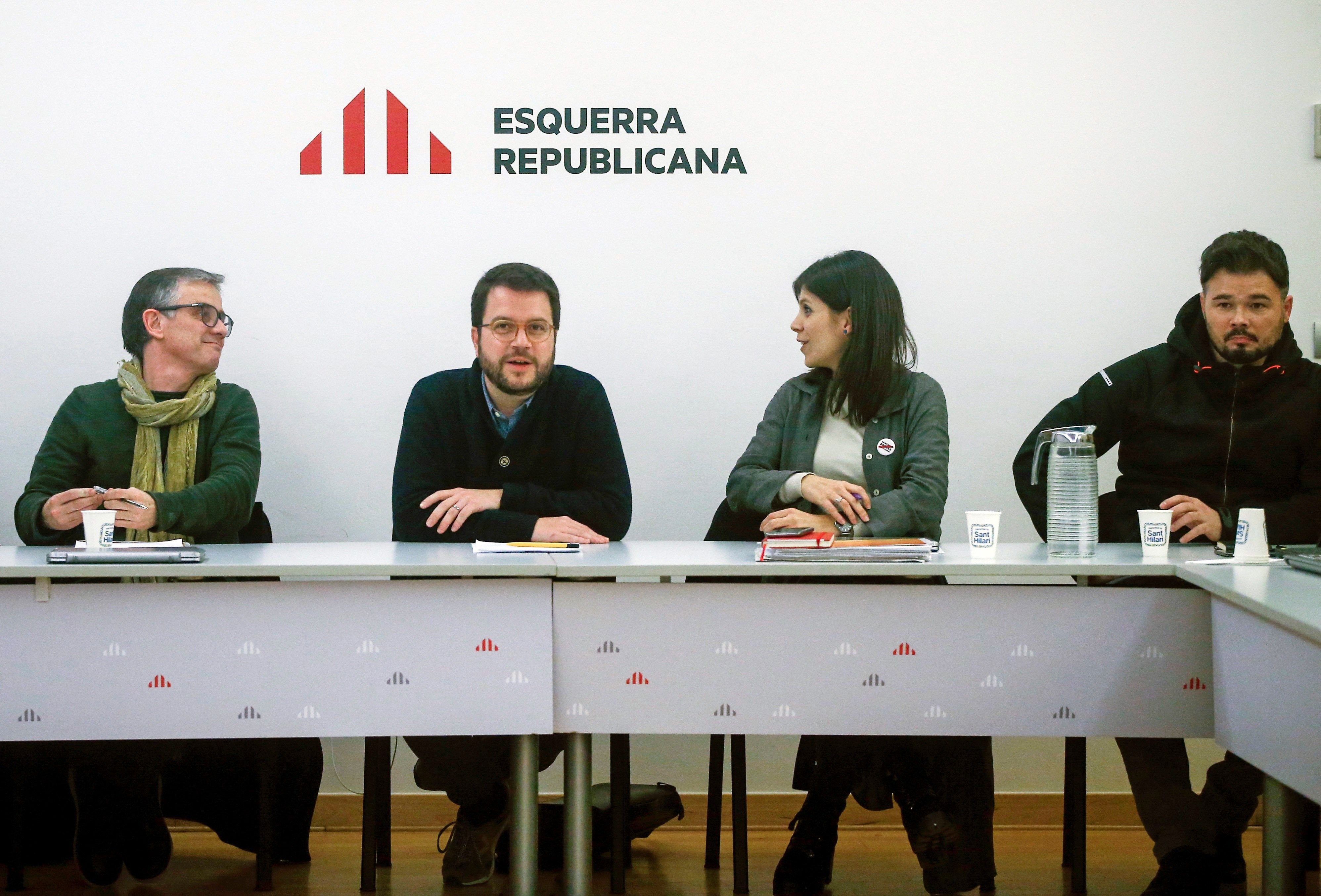Breaking the long deadlock to a new Spanish legislature is now in the hands of a Catalan pro-independence party. Specifically, the 13 deputies of the Catalan Republican Left (ERC) who hold the key to the formation of a new Spanish government under Pedro Sánchez. The party led by the jailed Oriol Junqueras has played its cards carefully over the last few weeks of intense negotiations with the Socialists (PSOE). The final decision will be taken by the party's National Council on January 2nd at 5pm, when around 270 members will represent the rank and file. The leadership is clear: "It is worth a try, worth putting some confidence in it, and for the independence movement to take advantage of the opportunity" offered by the PSOE.
ERC leaders met for several hours this Monday afternoon. On the table, the final offer from the Socialists and the opinion of the State Solicitors in relation to the immunity of Oriol Junqueras. The latter was initially received as good news, as it asks for Junqueras to be allowed to serve as an MEP. But after further reading, the euphoria fell away, because the report calls on the Supreme Court to initiate the procedure to remove his immunity and disqualify him as an MEP. "It's no gesture," party officials assert. In any case, ERC avoids linking the court decisions with the activation of a political path for the Catalonia-Spain dispute.
ERC deputy secretary general Marta Vilalta said in a press conference that the party was "skeptical and not ingenuous" about the Sánchez-led coalition, but would only be able to "check if he is serious" if they tried. "We have a lot of difficulty believing in this PSOE but we think it is an opportunity for the independence movement that we are obliged to take advantage of." She added a small but significant detail: "another letdown from the Spanish government could be definitive in convincing the majority of Catalans who still do not see independence as the solution."
As ElNacional.cat has learned, there have been developments in relation to the future negotiation table between the Catalan and Spanish governments. The PSOE has accepted that the format of this table should go beyond the existing bilateral commission, a body stipulated in Catalonia's Statute of Autonomy that regularly deals with aspects related to competences transferred to Catalonia. With regard to its meetings calendar - another key condition for ERC in the recent talks - the agreement includes timetabling the meetings in the framework of this new legislature. "It will not be a negotiation table just for two parties, but for governments", emphasized Vilalta, adding that "everything could be talked about" and that "obviously" the Catalan president would have to be present.
The slower tempo maintained by ERC is complicating Sanchez's wish to form a government before January 6th. According to some sources, the PSOE is now looking at how it could shorten the deadlines relating to the investiture debate. A fact that might give the parties of the right a reason to attack once again.

